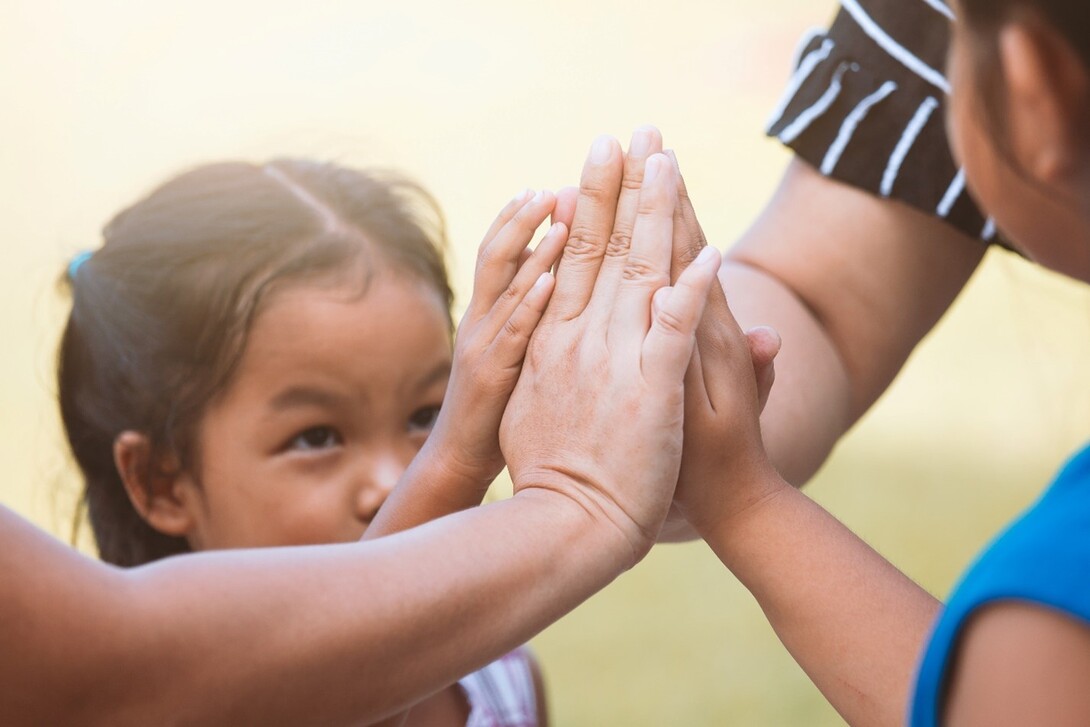
The Omaha Tribe of Nebraska and the University of Nebraska–Lincoln's Center on Children, Families and the Law are partnering to provide culturally informed training to Child and Family Services specialists serving Native American children and families.
The project, “Bridging the Gap for Native American Children,” received seed funding from the university's Engagement Collaborative, part of the N2025 Strategic Plan, to support university-community engagement that contributes to the public good.
According to the Nebraska Department of Health and Human Services, there were 1,741 substantiated cases of child maltreatment in 2022. Native American youth made up about 7% of these cases, which are governed by the Indian Child Welfare Act. Due to this relatively low incidence rate, Child and Family Services specialists serve a limited number of Native American children annually, leading them to have less experience in providing culturally aware support.
The “Bridging the Gap for Native American Children” project will proactively address this need by partnering with Nebraska tribes to provide educational resources on how best to serve tribal families who are navigating the child welfare system. Child welfare research shows that culture plays a powerful part in the protective factors that strengthen families and support prevention.
When the specialists receive training in cultural humility and are offered resources specific to the wisdom and traditions of each sovereign nation, they are equipped to better meet the individual needs of Native American children and families.
The Center on Children, Families and the Law will work with the Omaha Nation on the pilot project and hopes to create training resources with the Ponca, Santee Sioux and Winnebago tribes in the future.
“We believe this partnership will be mutually beneficial ...,” said DeAnna Parker, Omaha Nation member. “We are prepared to leverage our network of experts to assist in finding better ways to help our Native families navigate and be supported by the Nebraska child welfare system.”
Joe Fleming, director of Omaha Tribe Children and Family Services/ICWA, agreed.
“In addition, understanding tribal culture is key to understanding tribal communities,” he said. “The ability for tribal programs to advocate for state programs to gain knowledge, education and experience specific to tribal cultural and community norms is only beneficial to families needing access to services.”
The project is facilitated by co-principal investigators Sarah Melichar and Eve Brank at the Center on Children, Families and the Law, which is part of the university's College of Arts and Sciences.
Brank, psychology professor and center director, emphasized the importance of providing Child and Family Services specialists with culturally informed training.
“We know that equipping the child welfare workforce with the specialized tools they need empowers stronger efficacy for the children and families they serve,” she said. “Our mission is to help the helpers. Creating these types of resources in partnership with the Omaha Tribe of Nebraska will offer workers tailored training that increases cultural awareness and improves outcomes.”
The center's training team has experience in curriculum development and child welfare training, and Melichar has already begun bridging the gap in her role as a field training specialist.
"Over the years, CFS workers have expressed that they would like to learn more about the Nebraska tribes to assist Native American children and families better," she said.
The pilot for the project has four objectives:
- Partner with Omaha Nation to determine the cultural information the specialists need.
- Develop and distribute training resources, including short videos on how to best serve Omaha Nation's children and families.
- Evaluate whether the resources and videos are effective in helping specialists acquire and implement cultural knowledge.
- Share the pilot's data to secure additional funding to create individualized training with each Nebraska tribe.
“This project will focus on expanding collaborative relationships and enhancing understanding,” Melichar said. “When workers receive the opportunity to learn about tribal customs, support networks and communities, their ability to serve Native American children and families is strengthened.”
She said she is excited by the project's far-reaching potential and sees the possibility of tailoring training beyond Child and Family Services specialists to many types of professionals.







